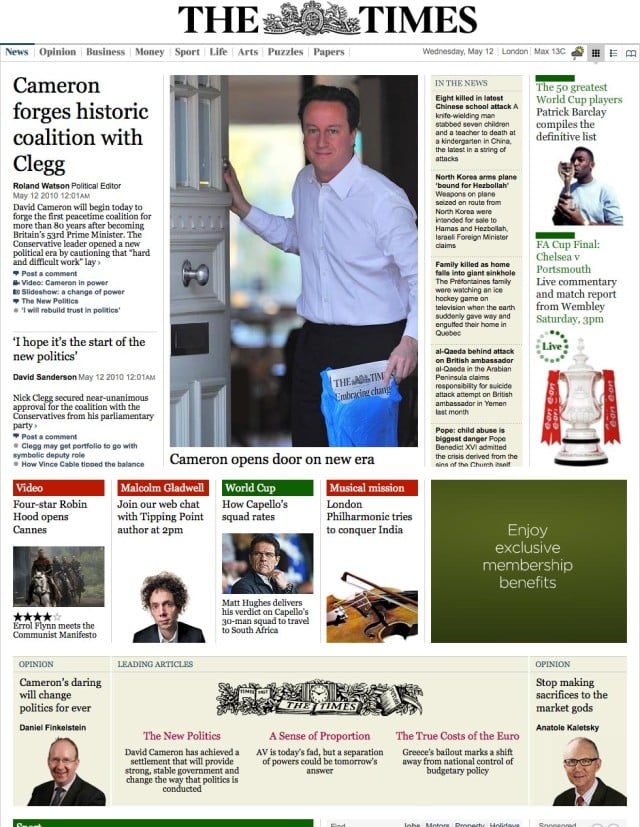
The Times and Sunday Times’ upcoming paid sites will not allow their articles to appear in search engines like Google (NSDQ: GOOG). That was one nugget gleaned during a preview of the attractive forthcoming relaunches Monday night. Times Online will relaunch as separate entities “imminently” has relaunched as two separate editions and will go paid within about four weeks. But the sites will only show their homepages, not articles, to search engines.
That means the sites – which are fine, focused products – could be passing up their greatest customer acquisition opportunity: their content itself. Non-members who reach a story page are greeted by a Times+ sign-up and login overlay, obscuring the article; there’s no taster, no excerpt and no way that anyone will find those articles via search sites.
It’s all a more conservative strategy than News Corp (NYSE: NWS) stablemate WSJ.com, but: “When we showed it to people, that was the model they preferred,” said Times executive editor Danny Finkelstein. “We’re completely unashamed about this. We’re trying to get people to pay for the journalism and we wanted to do it in a very simple way.”
Assistant editor Tom Whitwell added on the search issue: “The clarity is something that was very important. If you’re asking someone to pay for something, it has to be very clear what they’re paying for.”
But, by scoping down their possible customer base only to readers who already know and appreciate the Timeses’ particular output, the sites appear to be falling back on their core constituencies of loyal readers, or otherwise folk who already know what The Timeses stand for.
The £2-a-week reader charge, we learned, will auto-renew, unlike the £1 daily fee, and, naturally, no-one at the papers is prepared to communicate in-house subscriber targets. It’s this weekly pricepoint which the publisher thinks will be the more popular of the two.
The existing Times Online will remain online and visible to search engines for a period yet to be determined, containing only material from prior to the site’s separation. This site, Finkelstein said, “is a good opportunity to advertise our new product to people”.